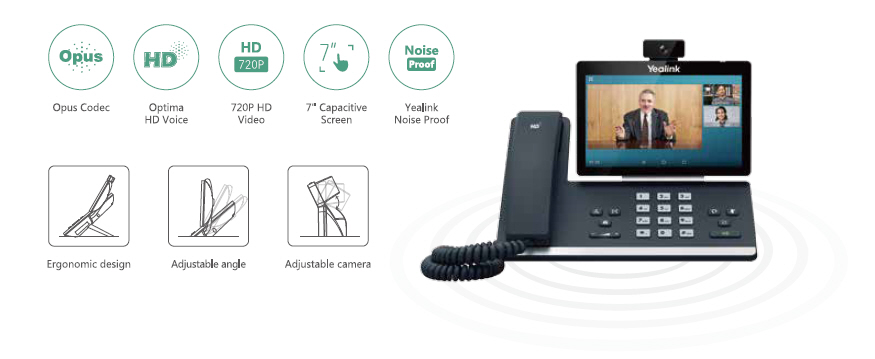Introduction
In today's fast-paced business environment, communication is paramount. As organizations strive for efficiency and cost-effectiveness, many are turning to Voice over Internet Protocol (VoIP) phone systems. While the benefits of VoIP are enticing—such as lower costs, flexibility, and advanced features—selecting the right provider can be a daunting task. This article aims to guide you through the essential 10 Questions to Ask Before Selecting a VoIP Provider. By addressing these crucial inquiries, you can ensure that you make an informed decision that aligns with your organization's needs.
What is a VoIP Phone System?
Voice over Internet Protocol (VoIP) phone systems transform voice communication into digital signals transmitted over the internet. Unlike traditional telephone systems, which rely on a physical connection through copper wires, VoIP uses broadband internet connections for voice data transmission.
How Does VoIP Work?
VoIP operates by converting analog audio signals into digital packets that can be sent over the internet. The process involves several key components:
- Analog-to-Digital Conversion: Your voice is converted into digital data. Data Transmission: The data packets travel over the internet. Digital-to-Analog Conversion: At the receiving end, the digital packets are converted back into audio.
This process allows for high-quality voice calls with enhanced features like video conferencing, voicemail-to-email transcription, and call analytics.
Benefits of Using VoIP Phone Systems
Cost Savings: VoIP phone services typically have lower operational costs compared to traditional PSTN (Public Switched Telephone Network) services. Flexibility: Users can make and receive calls from anywhere with an internet connection. Advanced Features: Many VoIP providers offer features such as call forwarding, auto-attendants, and integration with CRM systems.10 Questions to Ask Before Selecting a VoIP Provider
1. What Are Your Pricing Structures?
Understanding the pricing structure of different providers is essential for determining your budget and potential ROI (Return on Investment).
Sub-question: Are there any hidden fees?
Many providers advertise low rates but may include additional charges for equipment rentals or service setup fees. Ensure you ask about:
- Monthly service charges Equipment costs Installation fees Cancellation fees
2. What Kind of Support Do You Offer?
Technical support plays a crucial role in ensuring smooth operations when using a VoIP phone system.
Sub-question: Is support available 24/7?
Look for providers that offer round-the-clock support via multiple channels:
- Phone Email Live chat
A responsive support team can significantly reduce downtime during technical issues.
3. What Features Are Included?
Different VoIP providers offer varying features that cater to specific business needs.

Sub-question: Can you customize features based on our requirements?
Ask about essential features like:
- Call recording Conference calling capabilities Mobile app access Integration with existing software tools
4. How Reliable Is Your Service?
Reliability should be at the forefront of your decision-making process when choosing a VoIP provider.

Sub-question: What is your uptime guarantee?
Providers should ideally offer an uptime guarantee of 99% or higher. Inquire about their redundancy plans and disaster recovery options to ensure uninterrupted service.
5. What Security Measures Do You Have in Place?
Security is paramount when it comes to protecting sensitive business communications.
Sub-question: Do you use encryption?
Ask whether the provider employs encryption methods to secure calls and data transmissions against eavesdropping or hacking attempts.
6. How Easy Is It to Scale Up or Down?
As your business grows or changes, so too will your communication needs.
Sub-question: Can we easily add or remove lines?
Find out how easy it is to scale your service up or down based on changing workforce requirements without incurring excessive costs.
Evaluating Different Providers Based on These Questions
After formulating these questions, it's time to evaluate potential providers based on their responses:
Create a comparison table listing each provider's answers. Rate them based on pricing, reliability, security measures, and customer support. Use this information to narrow down your choices effectively.Additional Considerations When Choosing a VoIP Provider
While asking these ten questions provides clarity regarding each provider's offerings, there are additional factors worth considering:
Network Infrastructure Requirements
Ensure that your existing network infrastructure can http://brooksysjp550.yousher.com/the-environmental-benefits-of-switching-to-a-voip-phone-system handle increased bandwidth demands associated with VoIP usage.
Compatibility with Existing Hardware
Check if the new system integrates seamlessly with hardware like headsets and routers already in place within your organization.

User Training & Onboarding Services
Find out if the provider offers training sessions or onboarding services for employees unfamiliar with using a new system effectively.
FAQs About Selecting a VoIP Provider
What should I look for in terms of call quality?- Look for providers offering HD voice quality and low latency rates; also check if they have QoS (Quality of Service) settings enabled.
- Most reputable providers will allow number porting; confirm this feature before making any decisions.
- Inquire about international calling rates; some providers offer unlimited plans covering certain regions at no extra charge.
- Many modern VoIP solutions provide mobile applications allowing users to make and receive calls from smartphones seamlessly integrated into their office network.
- A minimum upload speed of 1 Mbps per call is recommended; consider performing an online speed test beforehand!
- Investigate whether they provide backup power solutions or other contingencies during outages affecting internet connectivity or local power supplies.
Conclusion
Selecting a suitable VoIP provider is an essential step toward enhancing communication within your organization while saving costs in the long run! By asking these critical questions—and considering additional factors—you'll position yourself well in making an informed choice tailored specifically to meet all necessary requirements effectively!
Take time crafting comparisons among various services available today; thorough research will pay off tenfold when it comes down choosing wisely! Happy hunting!